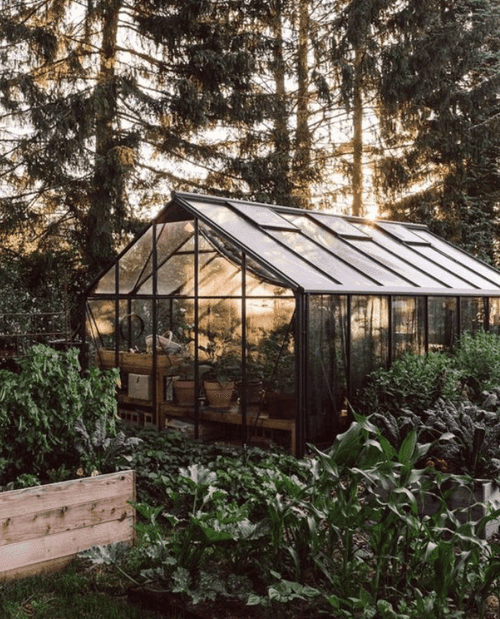Greenhouse Farming: Making Best Use Of Plant Yields and Sustainability
With regulated atmospheres and lowered water usage, greenhouse farming uses the perfect option for year-round manufacturing of fresh produce. Discover the benefits of greenhouse farming and begin reaping the benefits today!
Benefits of Greenhouse Farming
Are you wondering what makes greenhouse farming so helpful? One of the significant advantages of greenhouse farming is the capability to regulate the environment in which crops are grown.
An additional advantage of greenhouse farming is the decrease in water usage. Greenhouses are created to be water-efficient, with systems that reuse and capture water, lessening wastage. This is especially important in areas where water deficiency is a concern. By utilizing water more effectively, greenhouse farming aids to conserve this precious source.
Furthermore, greenhouse farming enables better insect and illness monitoring. With the controlled environment, it is much easier to manage the spread and stop of parasites and diseases. This minimizes the demand for unsafe pesticides, making greenhouse-grown crops safer and much more eco-friendly.
Moreover, greenhouse farming supplies defense versus severe climate occasions. Plants expanded in greenhouses are secured from hefty rainfall, solid winds, and hailstorms, which can harm or damage outside crops. Monarch Farm Greenhouse Utah. This defense makes certain an extra steady and trustworthy plant return, also during unpredictable weather

Making The Most Of Crop Returns With Regulated Settings
To optimize crop returns in greenhouse farming, you can accomplish optimal outcomes by managing the environment. By meticulously handling factors such as temperature level, humidity, light, and carbon dioxide levels, you can create the best conditions for your plants to thrive. Among the essential benefits of greenhouse farming is the ability to manage these environmental variables, allowing you to customize them to the particular demands of each crop. You can readjust the temperature to promote faster development throughout the day and lower it a little at night to resemble natural changes. In a similar way, you can manage moisture degrees to avoid conditions and ensure appropriate transpiration. By offering the ideal quantity and quality of light, you can prolong the expanding period and rise yields. Additionally, by managing co2 degrees, you can enhance photosynthesis and motivate energetic development. By implementing these managed settings, you can make the most of plant returns and attain consistent, premium fruit and vegetables throughout the year.
Encouraging Sustainability Through Greenhouse Farming
Make the most of sustainability in greenhouse farming by carrying out efficient resource management techniques. One key facet of promoting sustainability is the administration of water usage. By executing systems such as drip watering and recirculation, you can substantially lower water waste and guarantee that every drop matters. Furthermore, utilizing organic and eco-friendly materials for parasite control and fertilization can help decrease environmental impact. Integrated Parasite Administration (IPM) techniques, for instance, include the use of valuable bugs to control parasites, minimizing the need for unsafe chemicals. Power consumption can be lowered by utilizing eco-friendly energy resources, such as solar panels, to power greenhouse operations. This not just decreases dependence on fossil fuels yet also reduces greenhouse gas emissions. Appropriate waste management is one more crucial element in advertising sustainability. Implementing recycling and composting systems hybrid bermuda grass can minimize the quantity of waste sent to garbage dumps while additionally offering nutrient-rich garden compost for plant development. Integrating lasting techniques in greenhouse design, such as utilizing energy-efficient products and maximizing natural illumination, can additionally boost sustainability. By embracing these resource administration methods, you can add to an extra sustainable future in greenhouse farming.
Minimizing Water Use in Greenhouse Farming
By carrying out reliable water administration methods, you can substantially minimize water use in greenhouse farming. Water is a necessary source in farming, and saving it not only benefits the atmosphere but also helps to take full advantage of crop yields and productivity. One reliable technique to minimize water usage is through the usage of drip watering systems. These systems deliver water directly to the plant's origins, lessening evaporation and ensuring that every decline is made use of effectively. Additionally, surveillance and regulating the humidity levels inside the greenhouse can protect against unnecessary water loss. By using sensing units and automated systems, you can change the ventilation and watering appropriately, optimizing water use based upon the particular demands of your crops. Another method is to recycle and capture rain. Collecting rain from the greenhouse roofing system and saving it in storage tanks allows you to supplement your watering needs without depending entirely on freshwater resources. Additionally, applying mulching methods can help preserve soil dampness, minimizing the frequency of watering. Mulch function as an obstacle, preventing water evaporation and maintaining the soil cool and moist. By embracing these water-saving techniques, you can reduce water waste, save sources, and create a much more lasting future for greenhouse farming.
Year-Round Manufacturing of Fresh Produce in Greenhouses
Greenhouses supply a regulated environment that enables you to expand crops no matter of the exterior weather problems. Greenhouses can be outfitted with heating and cooling down systems to keep optimal temperatures for various plants. By executing these methods, you can maximize the efficiency of your greenhouse and appreciate a steady supply of fresh produce all year long.

Conclusion
In final thought, greenhouse farming offers countless benefits for taking full advantage of crop returns and promoting sustainability. Additionally, greenhouse farming permits for decreased water usage, making it an environmentally friendly selection.
One of the significant advantages of greenhouse farming is the capacity to manage the atmosphere in which crops are grown.To make the most of plant returns in greenhouse farming, you can achieve ideal results by Continue controlling the atmosphere. One of the key benefits of greenhouse farming is the ability to manage these environmental factors, permitting you to customize them to the particular demands of each crop.By applying effective water monitoring techniques, you can stihl edger dramatically minimize water use in greenhouse farming.In conclusion, greenhouse farming supplies numerous benefits for making the most of plant yields and advertising sustainability.